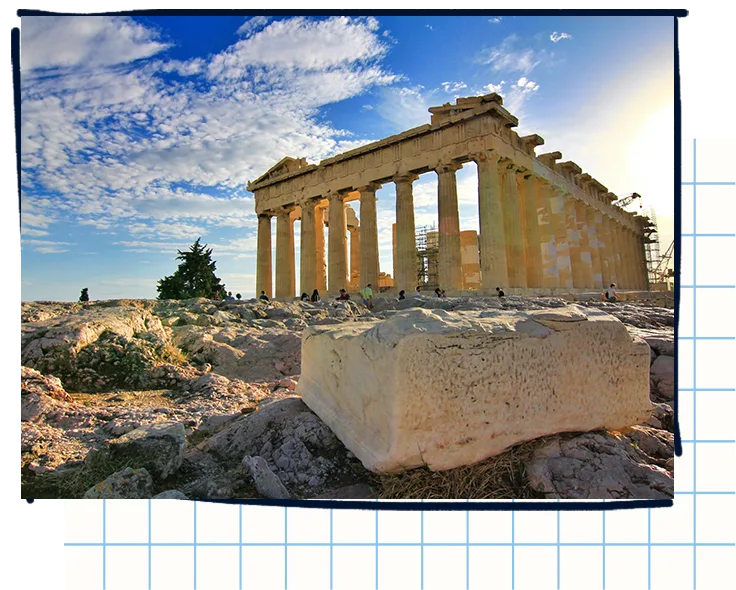
Greek
Modern Greek, or Standard Modern Greek, belongs to the Indo-European language family, like most European languages. Its historical roots are believed to lie in Anatolia, and today it is spoken primarily in Greece, the Republic of Cyprus, and within the Greek diaspora worldwide. As of 2012, the total number of speakers was estimated at 13.4 million.
Modern Greek is not limited to its standardized form. It also includes regional dialects such as Pontic, Cretan, Tsakonian, and Italiot Greek. While these dialects remain part of Greece’s rich linguistic heritage, they are gradually declining due to the dominance of the standard form in public and educational life.
Historically, Greece experienced a long period of social bilingualism . For many years, formal contexts (education, administration, and media) favored Katharevousa, a purified, archaic version of Greek. In contrast, everyday communication occurred in Demotic Greek—a simpler and more natural spoken form, closer to the people’s everyday life. In 1976, Demotic Greek was officially adopted as the standard language of the Greek state.
Greek has borrowed vocabulary from a variety of languages over the centuries, including Semitic, Latin, Turkish, Slavic, French, and Italian.
The Greek alphabet consists of 24 letters, each with uppercase and lowercase forms. These letters represent 19 phonemes, which, along with specific consonant and vowel combinations (e.g., μπ, ντ, τσ, τζ, ου), bring the total number of phonemes to 25.
Apart from native speakers, many foreigners living in Greece also use the Greek language, whether for work, education, daily communication, or integration. Moreover, there is an additional and significant reason to learn the language: proficiency in Greek is a fundamental requirement for acquiring Greek citizenship through naturalization.
Certificates and Levels
1. Centre for the Greek Language (EFNIL) – Greek Language Certification
- Levels:
- B1, B2, C1, C2
- Description: The Certificate of Attainment in Greek is used for professional purposes, for admission to Greek universities, for public sector employment, for obtaining a "long-term resident" permit, and for inclusion in the Seal of Biliteracy program in the USA. Exams are held every May, with an additional exam session in October for A2 and B1 levels, aimed at those needing the certification for professional reasons or for renewing their residence permit.
2. Certificate of Knowledge for Naturalization (Π.Ε.Γ.Π)
- Description: This certificate is a mandatory requirement for submitting an application for the naturalization of foreign nationals. Exams are held twice a year, and candidates must pass in the subjects of the Greek language, Greek history, geography, Greek culture, and the country's political institutions. The exam topics and answers for the tested subjects are available in the official Question Bank.
The Greek language is globally recognized and offers unique opportunities for foreigners who wish to learn it. At our institute, we provide preparation for certifications that are recognized internationally.
“Private lessons also available upon arrangement with the students.”
Are you interested in Greek?
I choose Greek!
I'm truly fascinated by the Greek language and eager to learn it!
Get in touch with us — we’ll be delighted to travel together into new worlds, discovering different cultures through the beauty of the Greek language.

